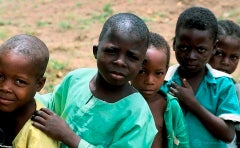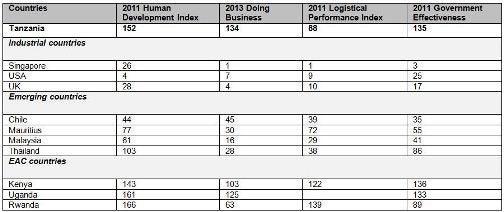 Speaking about the often unruly behavior of his talented young players, Arsene Wenger, the famous Arsenal coach, said: "Some are wrong because they are not strong enough to fight temptation and some are wrong because they don't know."
Speaking about the often unruly behavior of his talented young players, Arsene Wenger, the famous Arsenal coach, said: "Some are wrong because they are not strong enough to fight temptation and some are wrong because they don't know."
At this point in time, I would strongly urge Tanzania to try and resist rushing along with the temptations associated with the abundance of its natural resources (mining, natural gas, etc.) and instead take its time to understand what is really important for its long-term economic development.
Economic development is an elusive concept but lessons have emerged from both economic theory and international experience. A country is more likely to grow faster and better when its people are educated and in good health; its business environment is favorable to firms’ development; its economy is connected to domestic and global markets, and its public administration is able to manage public funds wisely and transparently. Trivial, one might think; but there are nonetheless huge variations in performance across countries in these four man-made policy areas (see table).
For obvious reasons, all developed countries rank relatively high. Singapore, for instance, claims the best business environment in the world (1st), the best logistical performance (1st), and one of the most efficient public administrations (3rd). Only its human capital development remains somewhat low compared to best standards (still 26th out of 182 countries in 2011). Of course, it can partly be argued that causality goes in the opposite direction – i.e. achievements in these policy areas are easier for rich than for poor countries.
Nevertheless, emerging countries such as Thailand, Mauritius, or Vietnam have rapidly climbed world rankings over just the past few decades purely by improving their human capital outcomes, the quality of their business environments, their connectivity to the world, and their governments’ effectiveness. A lesson for Tanzania also is that this rule holds for countries with rich natural endowments. Norway, Chile, Botswana, and Malaysia have all succeeded in their transition from natural resources dependency to sustainable broad-based growth thanks to parallel progress in man-made policies.
Table: World ranking in four man-made policy areas (click on table to see it larger)
Source: (1) hdr.undp.org/en/statistics/hdi/; (2) http://www.doingbusiness.org/; (3) www.worldbank.org/lpi; (4) http://wbi.worldbank.org/wbi/
So where is Tanzania today in its quest for economic development? Close to the bottom of world rankings in 2011/12 according to its business climate (134th out of 185 countries) and human development (152th out of 182 countries). The performance of its public administration was ranked 135th out of 212 countries in 2011. The only relatively bright spot was its connectivity (88th out of 156 countries), thanks to its access to the ocean – a big natural advantage that sets it apart from landlocked countries—yet delays have unfortunately increased as revealed by the long queues of vessels waiting at anchorage at the port of Dar es Salaam in recent months.
Worse, little progress has been registered over time. This is particularly visible with the investment climate and government’s effectiveness indicators where Tanzania lost 21 and 15 places respectively over the past five years. This lack of dynamism in policy reforms has also been reported in other East African economies (Uganda and Kenya) with Rwanda as the notable exception. Rwanda moved up in the Doing Business rankings from 150 to 63 between 2005 and 2013 and managed to considerably improve the effectiveness of its government and quality of its human capital. As a result, it has registered the highest per capita GDP growth rate among East African countries since 2005 – exceeding 5 per cent on average.
Clearly, all Tanzanians should know that economic development is not measured by the amounts of gold or natural gas available in a country. Those are means, not goals. They are useful if they can help the country accumulate man-made assets and this transformational challenge needs to be understood by the country’s leaders with a sense of urgency. Otherwise, Tanzania might fail to achieve its vision to become a middle income country by 2025.


Join the Conversation